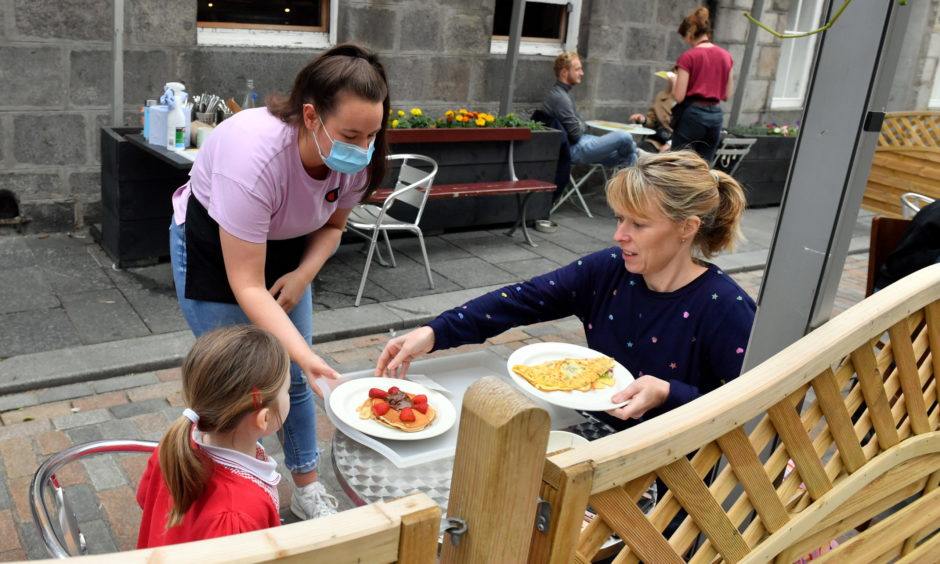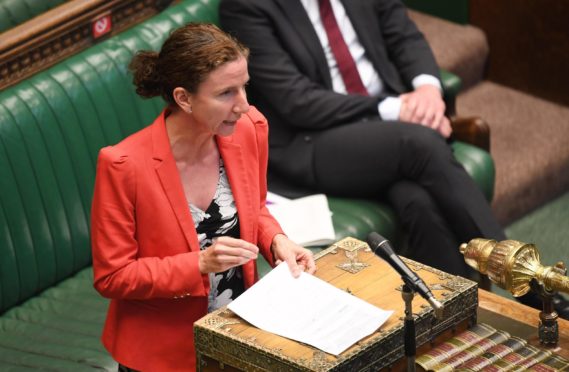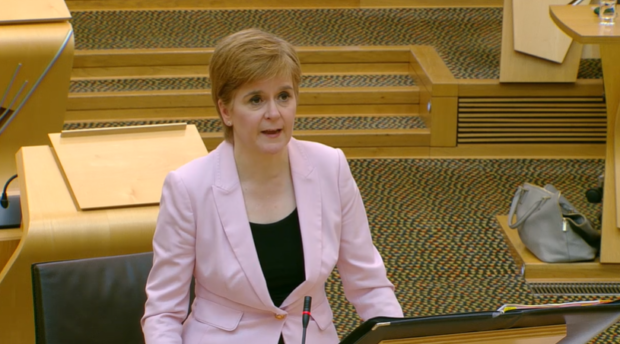Labour Shadow Chancellor Anneliese Dodds wants government to be “much more flexible” in the support it offers cities such as Aberdeen when facing local lockdown restrictions.
The Aberdeen-born politician also admitted it was a “worry” hospitality venues in the city had missed out on nine days of the UK Government’s 13-day Eat Out to Help Out scheme, amid calls to extend the scheme.
Ms Dodds, who in April became the first woman to be appointed shadow chancellor, also called for more “targeted” support from Westminster to protect jobs in key sectors, including hospitality, or else risk more “mass redundancies” in the future.
Speaking ahead of a visit to Scotland on Friday, Ms Dodds said “clarity of communication” is winning the support of the public, adding that “in Scotland a lot of people feel that, particularly, Nicola Sturgeon has been clear in what she has been saying”, in contrast to the “chaotic approach” of the prime minister.
Ms Dodds said the local lockdown in Aberdeen has been “incredibly tough” and will have impacted on wages and livelihoods for those affected, including, in some cases, on the “viability” of that business in the future.
She added: “We’ve been saying for many weeks, and indeed months now, that we need to have a much more flexible system for support.
“For example, in Leicester, they did eventually get some additional funding that was provided on a discretionary basis, but there is no clarity when any individual place would get that funding, how it could be provided to the Scottish Government, all those mechanisms, they’re very opaque.
“We need to be much more flexible in how we help places like Aberdeen as they are subject to this and people who are particularly strongly impacted.”
Although the Labour politician stopped short of saying diners in Aberdeen should see an extension of the Eat Out to Help Out scheme, which offered discounts to those eating inside venues between Mondays and Wednesdays during August, Ms Dodds said there should be a focus on some kind of “discretionary support” in the future, which could apply to industries including hospitality and tourism.

The Scottish Government launched a £1 million support fund for local businesses affected by the measures, administered by local councils in the form of £1,000 and £1,500 grants, and included £100,000 of discretionary support for businesses not directly affected by the restrictions.
Ms Dodds said while her party does not support the furlough scheme remaining exactly as it is “in perpetuity”, it does think the UK must look to other countries that provided targeted systems for particularly hard-hit industries.
The UK also suffers from having “really low levels of vacancies coming through”, the shadow chancellor argues, which means Britons could face difficulties finding work easily unless that financial support is forthcoming, and this a point she has stressed to UK Chancellor Rishi Sunak in arguing for a “change of course”.
On the question of a second independence referendum, the senior Labour politician maintains voters in Scotland are more concerned about jobs and the economy, rather than the quest to become an independent country.
She said: “These constitutional issues, I fully recognise that lots of people do care passionately about them, but actually having a long, protracted debate around all of that rather than focusing on particularly the economic challenges that we face, I really don’t think is what’s good for Scotland right now.”
During her visit to Scotland, the MP, who hails from Netherley, in Aberdeenshire, will get the chance to catch up with family in the region but she will also take part in a range of meetings in Glasgow and Edinburgh with the Scottish TUC, Scottish CBI and organisers of the Edinburgh Fringe, and will also meet Scottish Labour leader Richard Leonard and his deputy, Jackie Baillie.
Ms Dodds’ visit comes just days after leaked election strategy documents revealed Labour strategists argued against targeting seats north of the border in 2019 because the party is “not regarded as a serious rival by the public”.
However, the shadow chancellor is resolute that Labour has a future in Scotland.
She said: “It’s really critically important we do all we can to rebuild our strengths.
“I obviously have a personal commitment to that; I really want to see Labour do well. Not for partisan reasons but because there’s so many areas where Labour has to be there to make sure that we deal with those issues of disadvantage, particularly some of the educational developments we’ve seen over recent years.”

